Is the UK already out of recession? It’s a question that won’t be confirmed for months, but this morning’s update from the Office for National Statistics offers a positive hint that Britain’s economic contraction will be confined to 2023. According to the ONS, the economy grew by 0.2 per cent in January – thanks largely to improved services output, which rose by 0.2 per cent, and a bounceback in wholesale and retail trade. Construction output also turned a corner, growing by 1.1 per cent after three consecutive months of contractions.
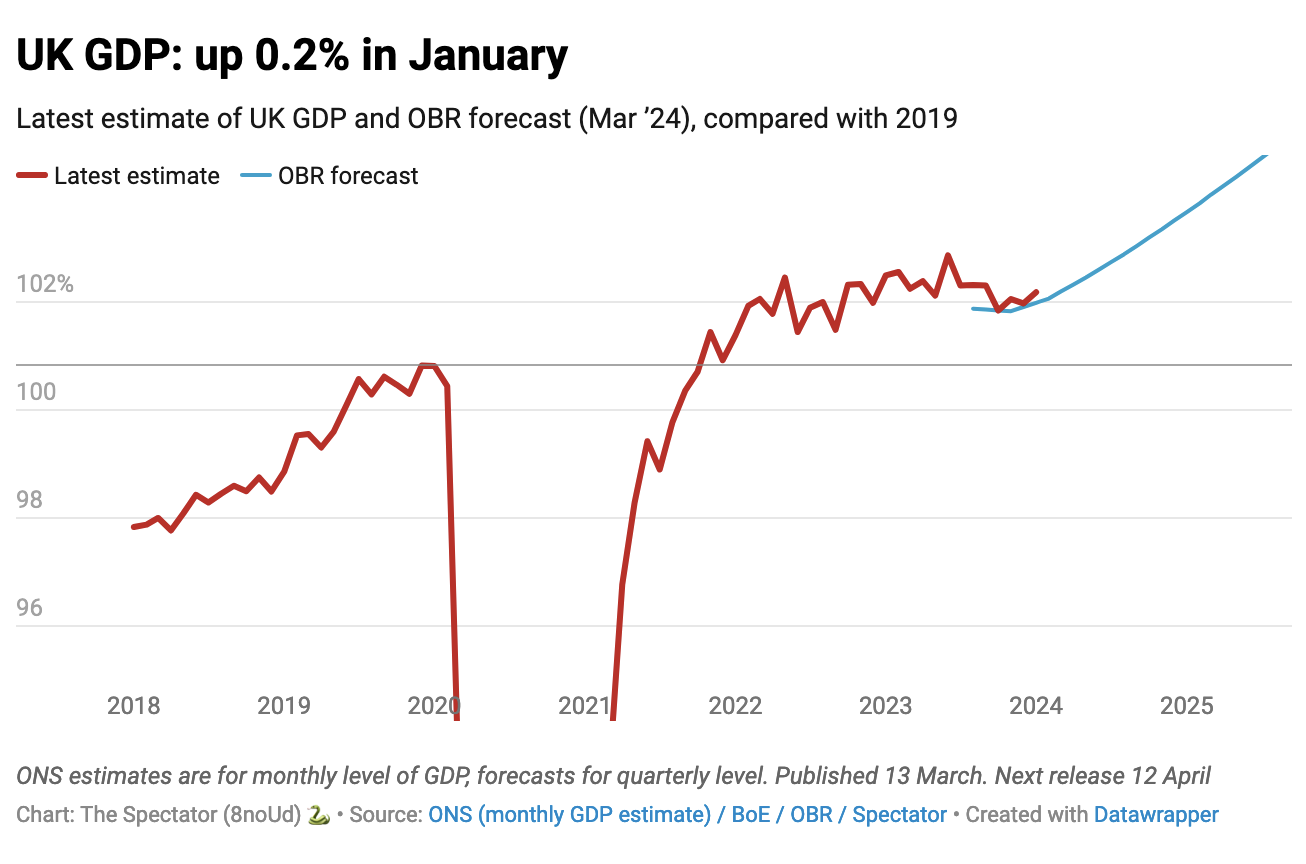
Is this the spectacular economic turnaround that Britain has been waiting for? GDP still fell 0.1 per cent in the three months to January, compared to the three months before – a hangover of last year’s repeated economic contractions, which eventually amounted to a technical recession. Moreover, 0.2 per cent growth remains difficult to boast about, not least when the latest forecast for growth in 2024 is a measly 0.8 per cent. These numbers still point to a stagnant economy that continues to struggle to boost GDP since the initial pandemic recovery.
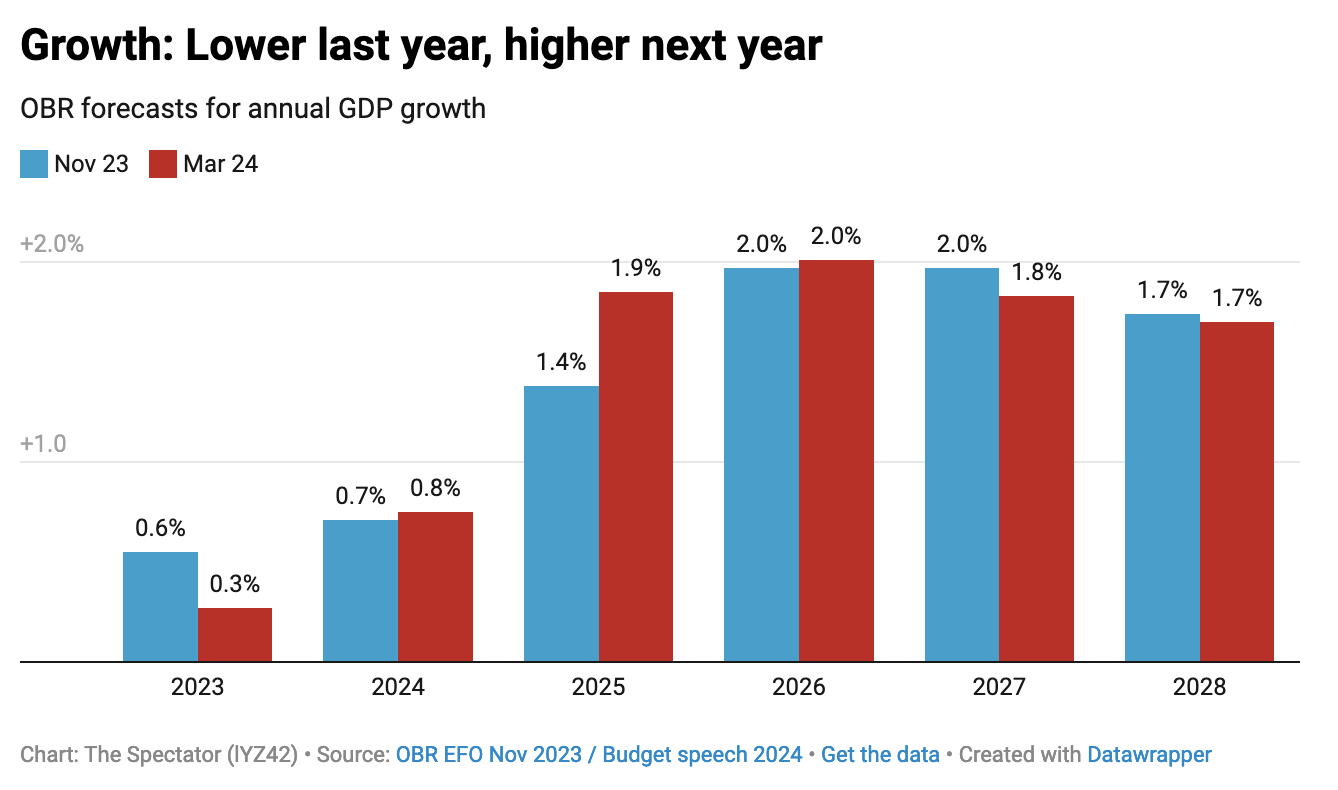
But compared to growth figures at the end of last year, things are looking up. If January’s figures aren’t revised down in the next ONS update, the UK is likely leaving recession just as quickly as it fell into one. According to Capital Economics, it would be difficult for another contraction to occur in the first three months of this year unless we get falls of more than 0.3 per cent in the monthly data for February and March. This is ‘not completely out of the question’ says the forecaster, but does suggest the ‘economy has turned a corner’ as it now predicts a 0.1 GDP increase in the first quarter of this year, rather than a 0.1 per cent contraction.
Growth in the first quarter of 2024 would confirm that this most recent recession was as short as shallow as it can be: an unfortunate blip – and certainly a sign of prolonged stagnation – but not an indicator of a shrinking economy in the near future. Ministers will be relieved that, in a matter of months, there is a good chance they’ll have a more positive story to tell about the economy: one that bounced back from recession quickly and shows no signs of contracting again.
Still, an uptick in growth figures this year won’t reflect how well off the public actually feels. Average household incomes are expected to be lower this year than they were in 2019: a difficult economic reality for the government as it heads towards an election.
Today’s update from the ONS may also have the frustrating effect of taking a bit of pressure off the Bank of England to start cutting interest rates. The accusation that rates of 5.25 per cent were crushing economic growth (what higher rates are designed to do, taking heat out of the economy to bring the inflation rate down) were most powerful when recession was formally announced. If it looks like it’s already lifting, the Bank may feel it has a bit more time to start its rate-cutting process: perhaps in the summer rather than the spring.
The ONS figures are a positive indicator that the latest recession is already in the past. The problem remains that growth figures continue to hover around zero: sometimes on the right, and wrong, side of the line. That’s not a sustainable place to be.
Got something to add? Join the discussion and comment below.
Get 10 issues for just $10
Subscribe to The Spectator Australia today for the next 10 magazine issues, plus full online access, for just $10.



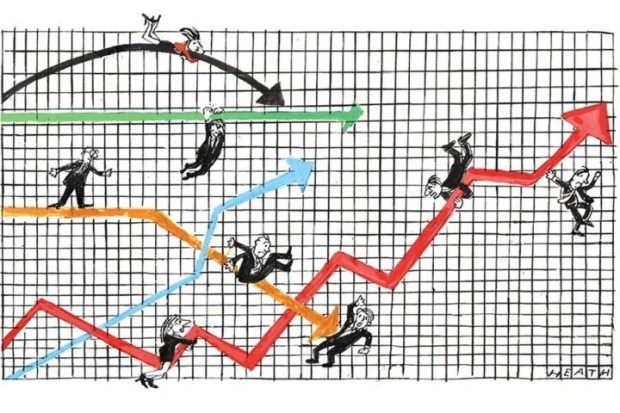
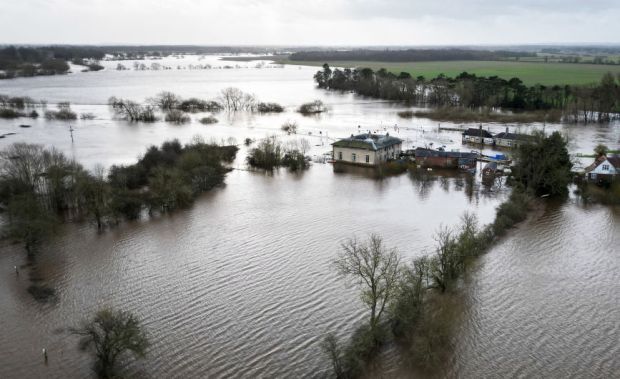

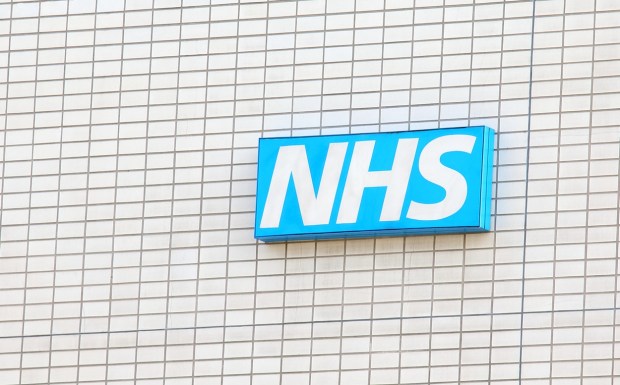














Comments
Don't miss out
Join the conversation with other Spectator Australia readers. Subscribe to leave a comment.
SUBSCRIBEAlready a subscriber? Log in